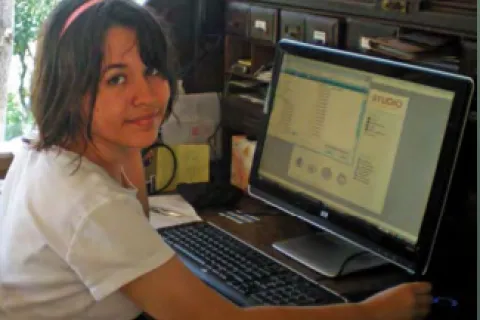Know Your Rights to Access Assistive Technology
New technologies have created opportunities and higher expectations for full inclusion of individuals with autism into all aspects of society, beginning with the classroom. Access to assistive technology can serve as a pathway to general education classrooms and a way to improve critical skills.
Assistive technology means any item, piece of equipment, or product system, whether acquired commercially, off-the-shelf, modified or customized, that is used to increase, maintain or improve functional capabilities of individuals with disabilities. Federal law requires that school districts identify the assistive technology needs that would benefit your child in his or her Individualized Education Program (IEP). Understanding your rights under the Individuals with Disabilities Education Act (IDEA) is crucial in securing the appropriate assistive technology for students with autism.
If it is determined by your child’s IEP team that assistive technology is required to benefit his or her education, the school district is responsible for providing those devices and services. When developing your child’s IEP, or during the yearly IEP team meeting, it is important for you to insist that assistive technology devices and services be included in the written IEP. No matter what form of AT is used by the IEP team, the law requires that the assistive technology needs of the child must be considered.
Here are a few quick facts to keep in mind when determining assistive technology needs in IEP meeting:
- Lack of availability of cost cannot be used as an excuse for denying assistive technology devices.
- Lack of teacher training cannot be used as an excuse for denying assistive technology devices.
- A child is allowed to take a device home if it is needed to enable him/her to benefit from his/her educational program as determined by the IEP team
- Training of teachers’ aides and the student can be listed in the IEP as assistive technology services
- Parents have a right to disagree with the school’s decisions concerning assistive technology
If the IEP team is unable to determine what assistive technology services best enable your child, then a formal assistive technology evaluation may be needed.
This evaluation should be performed by a qualified professional in a timely manner. The school system may choose to use its own personnel to conduct the evaluation. However, if you disagree with the recommendation of the evaluation, you have the right to an independent evaluation at the school district’s expense. If differences arise, try to resolve them by meeting with the IEP team first. Procedures for taking more formal action vary state by state.
For more information on the dispute resolution process, see Autism Speaks’ IEP Guide.








